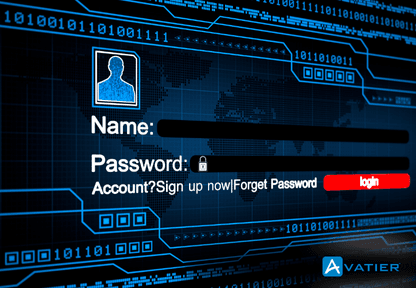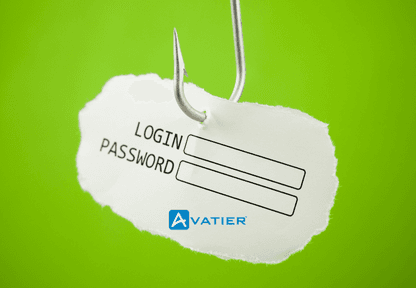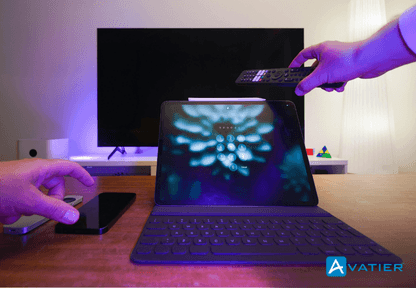June 17, 2025 • Mary Marshall
The Business Case for Identity Orchestration in 2025
Explore the future of identity orchestration in 2025 with Avatier, enhancing security and streamlining workflows for a seamless experience.

The need for effective identity management has never been more crucial. As we look forward to 2025, identity orchestration emerges as a key player in the strategic toolkit of any forward-thinking enterprise. Leveraging platforms like Avatier, businesses can streamline identity workflows, enhance security, and deliver a unified user experience that supports agile operations and robust compliance requirements.
The Landscape of Identity Management in 2025
The next few years will witness significant changes in how organizations approach identity and access management (IAM). As cyber threats become more sophisticated, an integrated approach to identity orchestration can help mitigate risks and maintain compliance with stringent regulations. Enterprises are under pressure to adopt solutions that not only safeguard their systems but also enable seamless user access and management across multiple platforms.
According to market forecasts by MarketsandMarkets, the global identity and access management market is expected to grow from $13.4 billion in 2021 to $34.5 billion by 2026, reflecting a compound annual growth rate (CAGR) of 21.3%. As businesses look for solutions to simplify identity governance, platforms like Avatier offer critical advantages by unifying workflows and providing AI-driven insights.
Why Identity Orchestration?
Identity orchestration refers to the seamless integration and automation of identity management processes across varied applications, systems, and environments. This concept becomes a cornerstone of efficiency, enabling organizations to manage user identities dynamically and securely. With Avatier’s Identity Anywhere platform, enterprises can benefit from containerized, scalable solutions that support both cloud and on-premises deployments.
1. Enhanced Security and Zero Trust: Transitioning to a zero-trust architecture can significantly minimize an organization’s attack surface. By orchestrating identity, access is continuously verified using risk-based analytics driven by AI. Avatier provides tools to help enterprises implement zero-trust principles, reducing dependency on traditional perimeter security.
2. Seamless User Experience: Avatier allows for the automation and optimization of user provisioning and deprovisioning processes, ensuring that employees have the right access to resources without unnecessary delays. This is paramount in industries where time equates to cost, such as healthcare and finance.
3. AI-Driven Automation: By 2025, identity management will heavily rely on AI to predict and respond to potential security threats. Avatier’s integration of AI into its solutions facilitates intelligent automation, ensuring that access management adapts rapidly to evolving risks and user behaviors.
Building a Business Case with Avatier
Crafting a strong business case for adopting identity orchestration solutions like Avatier involves focusing on cost savings, risk reduction, and enhanced operational efficiency.
Cost Savings Through Automation: Automating identity-related tasks can extend significant cost benefits. According to a study by SailPoint, organizations can reduce the time spent on identity management by up to 50% with automated solutions. By automating processes such as user provisioning and self-service password management, companies can redirect valuable IT resources toward strategic initiatives.
Risk Reduction: Utilizing Avatier’s comprehensive identity management suite, businesses can consistently enforce compliance policies and monitor access across the organization. This not only reduces the risk of data breaches but also ensures adherence to regulatory frameworks such as HIPAA and GDPR.
Enhancing Efficiency: Orchestration improves operational efficiency by reducing downtime associated with manual access management tasks. Avatier’s user provisioning tools enable organizations to manage resources more efficiently, leading to improved productivity across departments.
The Competitive Edge
In a landscape populated by competitors like Okta, SailPoint, and Ping Identity, Avatier differentiates itself through its unique approach to identity orchestration. Avatier’s focus on containerized solutions ensures that enterprises are not locked into particular vendors, providing the flexibility needed to adapt to future technological changes.
Switching to Avatier from providers like Okta or Ping is often motivated by the need for more comprehensive integration capabilities and a simpler user experience. Avatier’s user interface and intuitive self-service features are consistently highlighted as advantages by those who make the switch.
Compliance and Regulatory Challenges
Adapting to complex regulatory environments continues to be a top challenge for enterprises. Avatier’s governance and compliance tools enable organizations to maintain a compliant posture effortlessly. The platform’s risk assessment features offer ongoing audit capabilities, supporting regulations such as FISMA, SOX, and NERC.
Conclusion
The business case for identity orchestration in 2025 is compelling. As organizations navigate the complexities of modern identity management, Avatier stands out as a leader in delivering robust, flexible, and forward-thinking solutions. By simplifying identity workflows and enhancing security frameworks, Avatier empowers enterprises to focus on their core missions while confidently managing access in a rapidly changing digital landscape.









